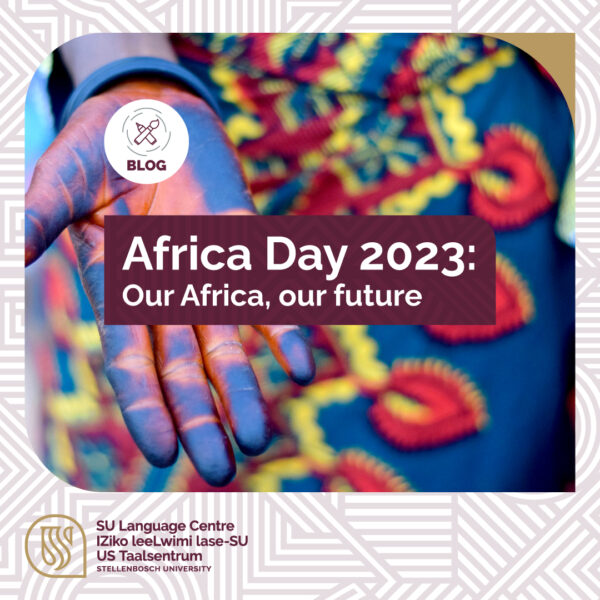The days of the week in isiXhosa
Why do we say ‘Monday’ for Monday? Where do the names for the days of the week come from in isiXhosa, English and Afrikaans?
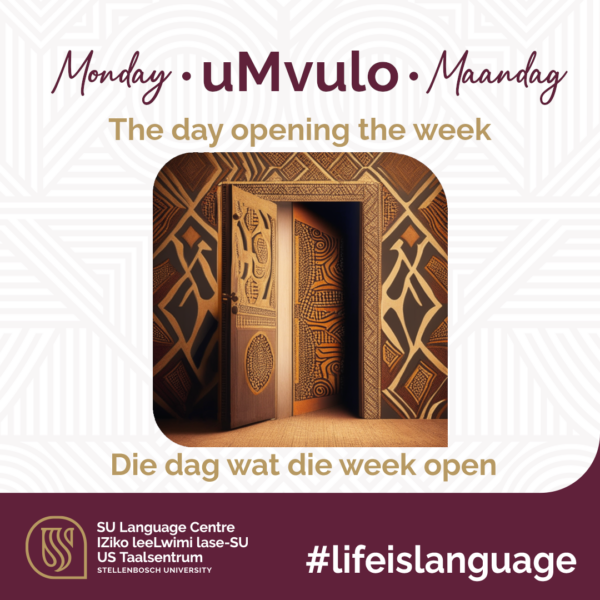
uMvulo (The day opening the week)
In Afrikaans and English, the names of the days of the week come from Roman mythology. So, Monday is a loan translation of the Latin ‘dies lunae’, which means ‘day of Luna’, because this day is dedicated to the Roman moon goddess Luna.
In isiXhosa, each day of the week is linked to a specific meaning. The first day of the week in isiXhosa, ‘uMvulo’, is derived from the verb ‘-vula’, which means ‘to open’. In other words, Monday is the day opening the week.
uLwesibini (The second day)
The amaXhosa also use the seven-day week, however, unlike in Afrikaans or English, they derive the words for Tuesday to Friday from numerals. The word for ‘two’ in isiXhosa is ‘-bini’ and that is why we say ‘uLwesibini’ for Tuesday in isiXhosa.
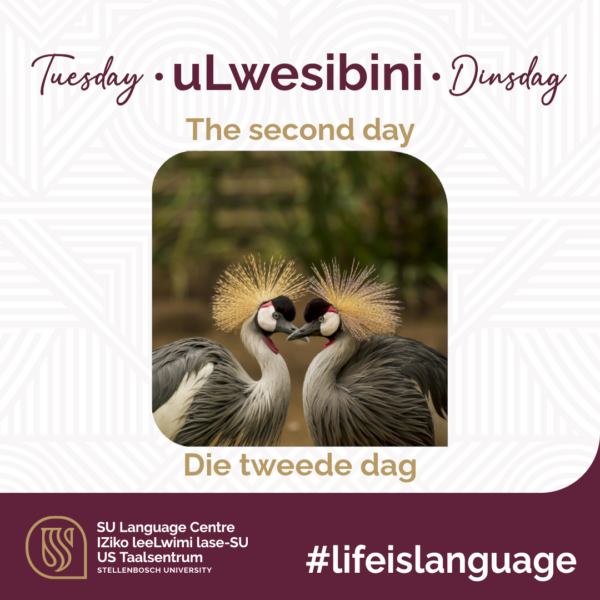
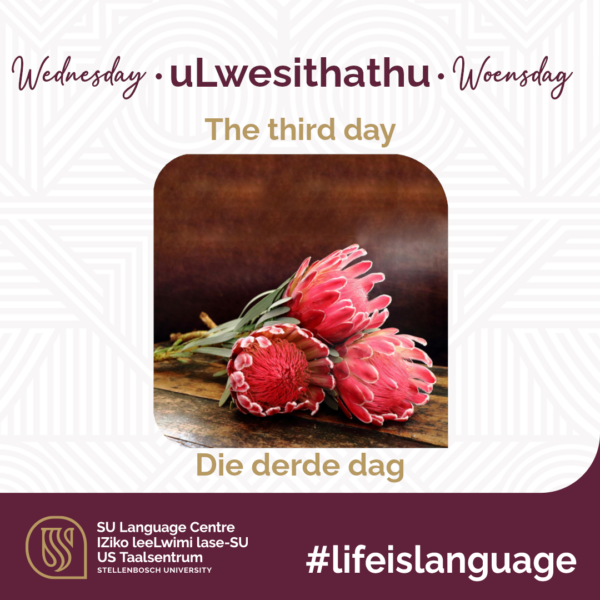
uLwesithathu (The third day)
For the remaining days before the weekend, we can simply substitute the numeral part of the word to show which day it is. To create the isiXhosa word for Wednesday, we use the numeral ‘-thathu’, which means three, to form ‘uLwesithathu’.
uLwesine (The fourth day)
For the fourth day of the week we use the isiXhosa numeral ‘-ne’, which means ‘four’, to create ‘uLwesine’ – the isiXhosa word for Thursday.
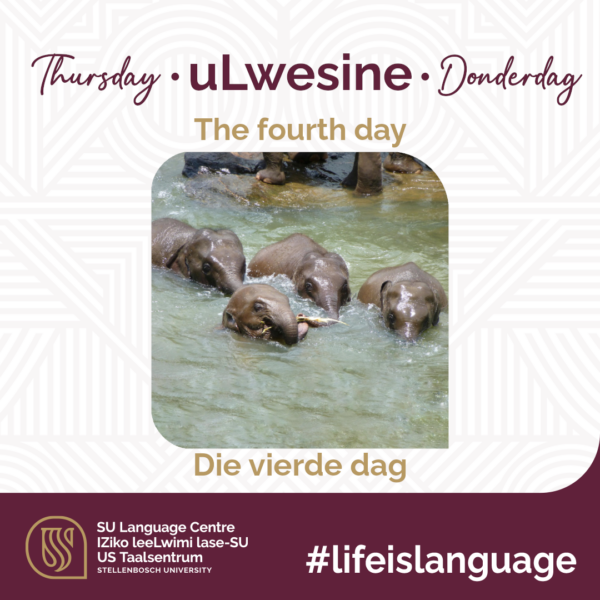
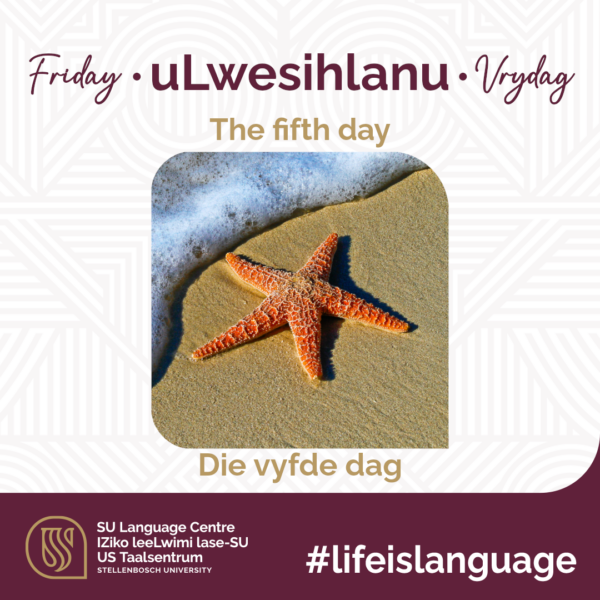
uLwesihlanu (The fifth day)
Friday is the last day of the week derived from numerals in isiXhosa. We use the numeral ‘-hlanu’, which means ‘five’ in isiXhosa, to get to ‘uLwesihlanu’ – the Xhosa word for Friday.
uMgqibelo (The day ending the week)
According to the seven-day calendar Sunday marks the end of the week. However, in isiXhosa, Saturday is considered the last day of the week or the day that ends or closes the week. Therefore, in isiXhosa we use the word ‘uMgqibelo’ for Saturday, which is derived from the verb ‘-gqibela’, meaning ‘to finish’.
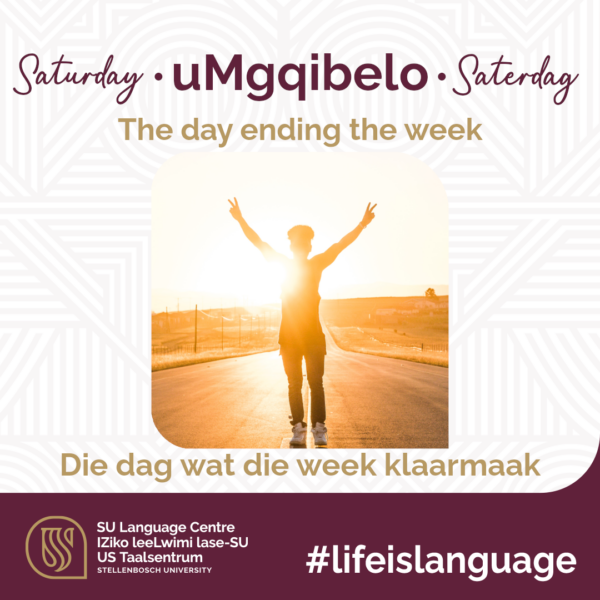
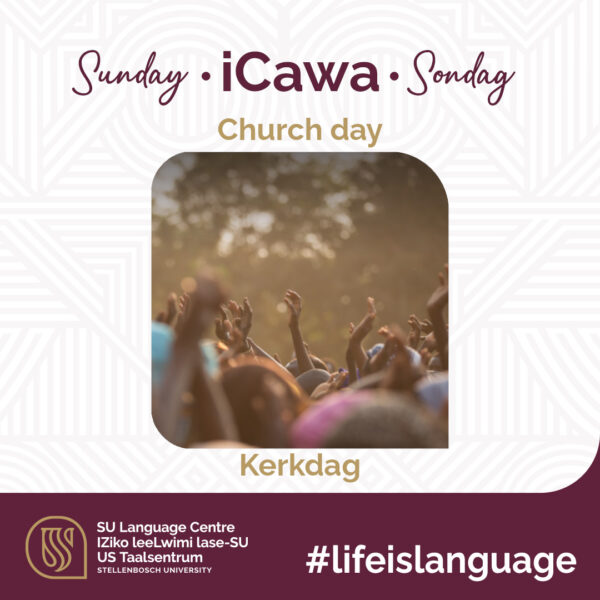
iCawa (Church day)
Sunday is the day when people traditionally go to church. European missionaries settled among the amaXhosa in the 1820s, introducing Christian traditions, some of which the amaXhosa have adopted. That is why we use the isiXhosa word for church, ‘iCawa’, to refer to Sunday in isiXhosa.
If you’ve read until this point, congratulations – you’ve added seven words to your isiXhosa vocabulary!
